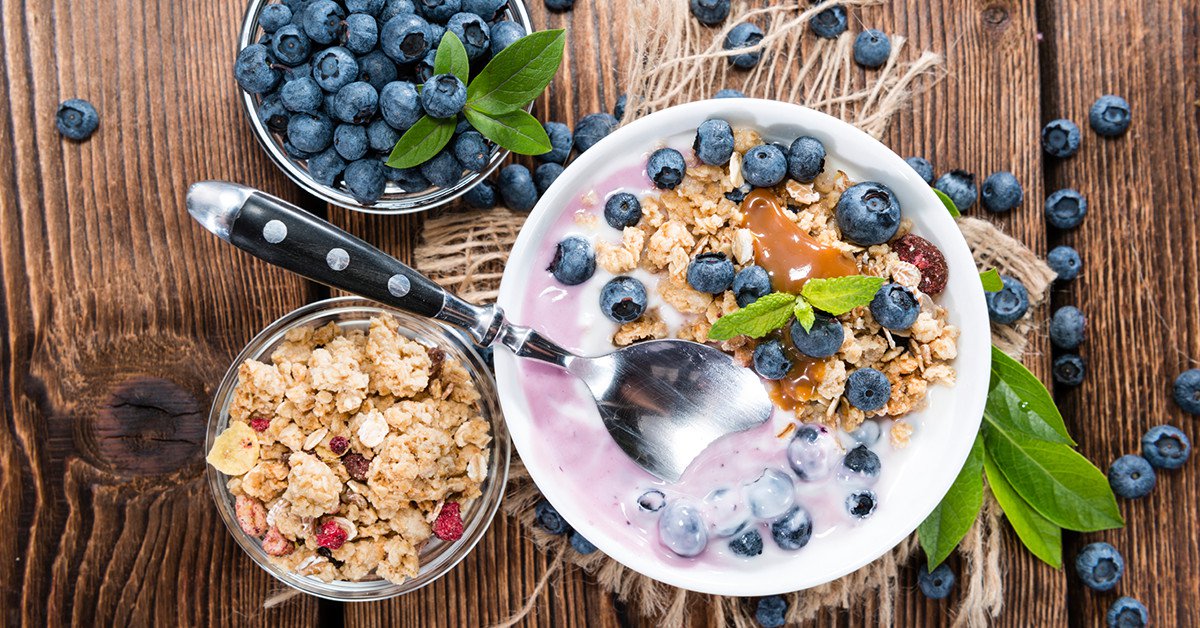
Is Yogurt Healthy?
Probiotics are hot news these days. Linked to everything from improved immunity to supporting a healthy weight, probiotic containing foods are an important part of a healthy diet. Yogurt is one way to support your body’s need for probiotics in a simple grab and go option, but are all yogurts created equal? Here are a few ways to decide which packages deserve a space in your fridge.
Greek Yogurt:
Once a specialty product, Greek yogurt has surged in popularity in recent years and now fills the shelves of even the smallest grocers. This yogurt is strained of whey, resulting in a thicker product that provides a concentrated source of protein. Some varieties also mix in powdered milk in order to thicken the finished product. You’ll find Greek Yogurt in fat free, low fat, and full fat varieties. The major benefit of Greek yogurt over regular yogurt is its staying power. By removing whey, Greek yogurt provides a concentrated source of casein protein which supports long term muscle growth and repair. To really maximize the staying power, choose a full fat version and mix it with fresh fruit, for an awesome breakfast or bedtime snack.
Traditional Yogurt:
Remember the yogurt you used to eat when you were a kid? Yeah, that’s still around, but so are many other options. Basic yogurt is fermented milk offering a hefty dose of protein and probiotics and is available in organic and low fat varieties. Yogurt offers a healthy balance of both casein and whey protein, making it a better choice after workouts, when recovery and quick absorption of protein are important. For a simple lunch, mix in some protein powder and fresh fruit and nuts for a satisfying lunch that won’t weigh you down. Yogurt is also a great substitute for sour cream or mayonnaise when making salad dressings or dips. How do you pick a good one? If you’re substituting yogurt in cooking, I recommend an organic, full fat version. By choosing organic, you’ll benefit from healthier fats and a natural food, while reducing calories and increasing protein over other dressings and dips. Keep a big tub of this in your refrigerator and use it liberally to up the protein of everything from salads to sweet potatoes.
Kefir And Other Fermented Products:
Yogurt isn’t the only way to include probiotics in your diet. Non-yogurt and non-dairy options are also widely available. Found next to the milk, Kefir is a tasty option to widen the range of probiotics in your diet. Thicker than milk and thinner than yogurt, low-fat Kefir makes a protein packed addition to a post-workout smoothie to support muscle repair and recovery. Choosing low fat post workout, increases your ability to quickly absorb the nutrients in your recovery drink. Try mixing a cup of Kefir with ½ cup of frozen fruit to provide a blast of anti-oxidants, protein, and healthy carbohydrates that will help prepare you for my next training session.
Not into dairy? While yogurt is traditionally made with milk, other options are widely available, including those made from soy or almond milk. Additionally, yogurt type products are not the only source of probiotics available. Other fermented foods, such as pickled vegetables, sauerkraut, and even Korean kimchee can be kept in your fridge and used to round out your dinner, on sandwiches and wraps, or to spice up your favorite entrée. The biggest trick to benefiting from these probiotic rich foods, is to introduce them in small amounts, increasing them to daily or more in order to support probiotic growth in your body.
So, Is Yogurt Healthy? It Depends, Here Are Our Picks:
Lifeway Kefir Cultured Lowfat Milk Smoothie in Madagascar Vanilla:
With 11 grams of protein in 140 calories, try blending this with frozen fruit in a blender for an awesome post workout refuel.
Yoplait Greek 100 Whips in Salted Caramel:
Offering a nice balance of carbs and protein at only 100 calories, keep a container in your freezer and enjoy it when you thought you wanted ice cream.
Stonyfield Organic Smooth and Creamy Whole Milk Yogurt:
With 9 grams of protein, keep this in your fridge and use it to make salad dressings, top beans or burritos, and even spread on a wrap. For a quick and convenient lunch that travels well, I add a scoop of vanilla protein powder and a handful of berries and sliced almonds.
Chobani Coconut Blended:
Chobani has stolen the Greek Yogurt market offering a range of tasty and convenient options. The Coconut Blended includes a bit of fat to balance out the nutrition profile and increase the staying power, while also keeping the calorie count low. Whole Milk Vanilla flavor is also a nice option. While it’s a little higher in calories, the increased protein level makes those calories a wise investment that will keep you satisfied until your next meal. Try one of these with a banana and a few almonds for a breakfast that will keep you going all morning and provide a probiotic and pre-biotic punch that make this a powerful combination.
About the writer: Joli Guenther is a certified personal trainer, yoga instructor and clinical social worker practicing in and around Madison, Wisconsin. Learn more about Joli.

